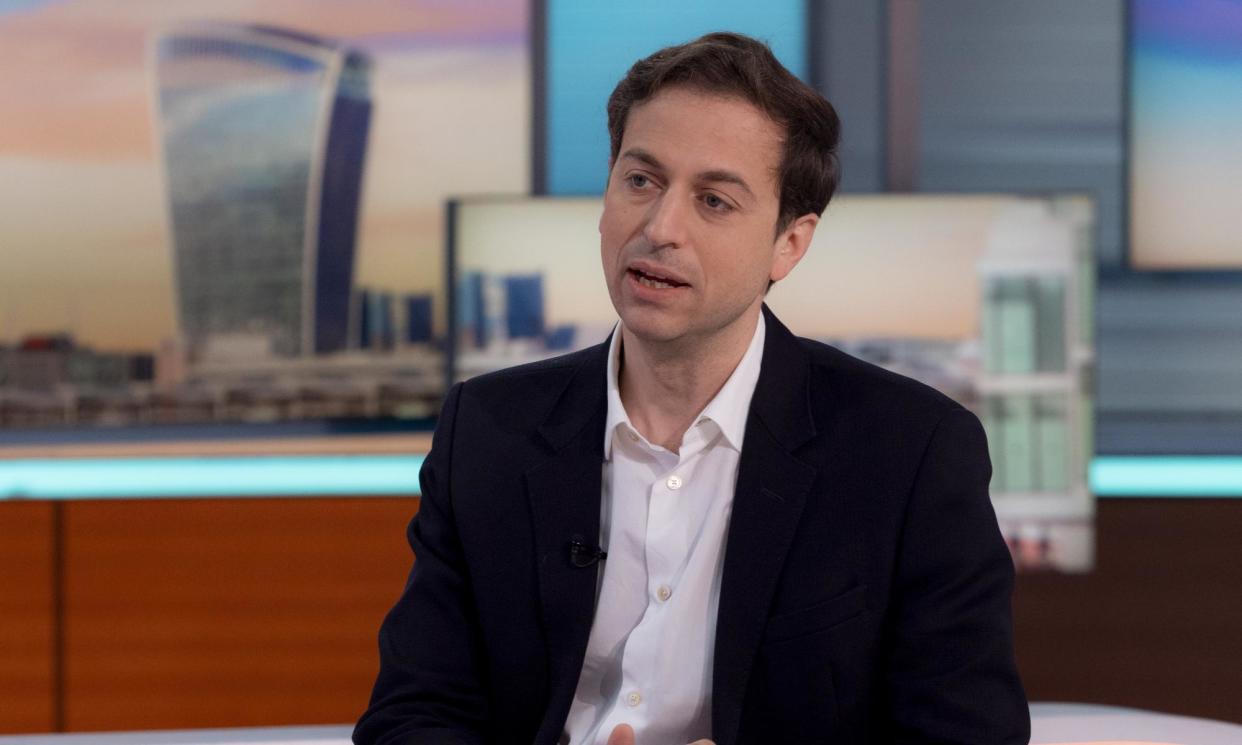Initial story about 'openly Jewish' incident not full picture, says ex-senior Met officer

An initial account of an exchange between a police officer and an antisemitism campaigner that sparked heavy criticism of Scotland Yard did not show the full picture, a former senior officer has said.
Footage released by the Campaign Against Antisemitism (CAA) last Friday showed its chief executive, Gideon Falter, being told by a police officer that his “openly Jewish” appearance risked antagonising pro-Palestinian marchers. This precipitated claims Falter was prevented from going about his business simply because he was a Jewish man in the vicinity of a pro-Palestinian demonstration.
But a longer version of the same exchange has since emerged on Sky News, showing the officer explaining that his concern was that he had seen Falter acting in a way that led him to believe he was trying to provoke a confrontation with marchers.
Related: What does a longer video of the exchange between Met officer and antisemitism campaigner tell us?
That fuller account showed “a totally different encounter to the one that Mr Falter has reported”, said the former Scotland Yard chief superintendent Dal Babu on Monday.
His comments came as the prime minister, Rishi Sunak, said he retained confidence in the Metropolitan police commissioner, Sir Mark Rowley, but the latter needed to rebuild “confidence and trust” with the Jewish community.
While Babu said the “openly Jewish” comment was “not acceptable”, he told BBC Breakfast that the longer clip showed Falter “attempting to go against the march, trying to push past the officers, and I think for 13 minutes the officers showed great restraint”.
Babu added: “They offered to take him to a crossing point, they offered to help him and the group he was with the opportunity to cross at a more appropriate place. So the narrative that’s been pushed for the past few days is not accurate.
“Personally, if I was policing that march, I would have been inclined to have arrested [Falter] for assault on a police officer and breach of the peace.”
In the shorter CAA version of the footage, Falter could be seen on the fringes of the march in central London earlier this month, wearing a kippah and trying to pass police officers so he could cross the demonstration’s path to get to the other side of the street.
An officer blocked his way, telling him: “You are quite openly Jewish, this is a pro-Palestinian march, I’m not accusing you of anything but I’m worried about the reaction to your presence.” Falter was also offered a police escort away and told that if he chose to stay put, he would be arrested for a “breach of peace” because his presence was antagonising in the context of the march.
The longer version shows the officer explaining to Falter that his approach was informed by the knowledge he had already deliberately walked out into the middle of the march and was therefore “looking to try and antagonise this”.
Addressing Babu’s comments, Falter said: “A former chief superintendent has even outrageously suggested that I assaulted a police officer and should have been arrested. This has now gone far beyond victim-blaming. These tactics are desperate, but they reveal the Met’s priorities.”
Falter has vowed to continue attending marches, telling ITV’s Good Morning Britain: “It’s not, for me, about these frontline officers. It’s about the decisions that have been made for six months now by Sir Mark Rowley, who has failed abjectly to stand up for Jewish Londoners and … he’s curtailed our rights and our ability to walk around the street, in favour of letting these huge groups of protesters do what they want to do.”
Ahead of the next march on Saturday, Falter said: “After this all happened, I felt it’s actually very important that Jews feel that they can walk the streets.”
Rowley has been summoned to a meeting with the home secretary, James Cleverly, and the mayor of London, Sadiq Khan, on Monday afternoon. The home secretary will press Rowley on whether the force is using all its powers under the Public Order Act – such as the power to impose conditions on the marches. The Met has insisted it has been using the law as vigorously as the legislation allows.
The Community Security Trust (CST), which monitors anti-Jewish abuse and attacks and provides security for UK Jewish communities, said: “We see the extra support the police have given to our community, we know why it is needed and we know that it is usually done with the professionalism that everyone expects, without it making the headlines.
“Despite all the good work, there have also been mistakes which set everything backwards and stick in the public mind as further showing how bad things are right now. This latest case fits that profile, with the context and detail lost in the heat of controversy. An individual officer tried to do the right thing but ended up making things worse in a very difficult moment.”
The Met commissioner will also meet leaders of Jewish groups on Monday.


